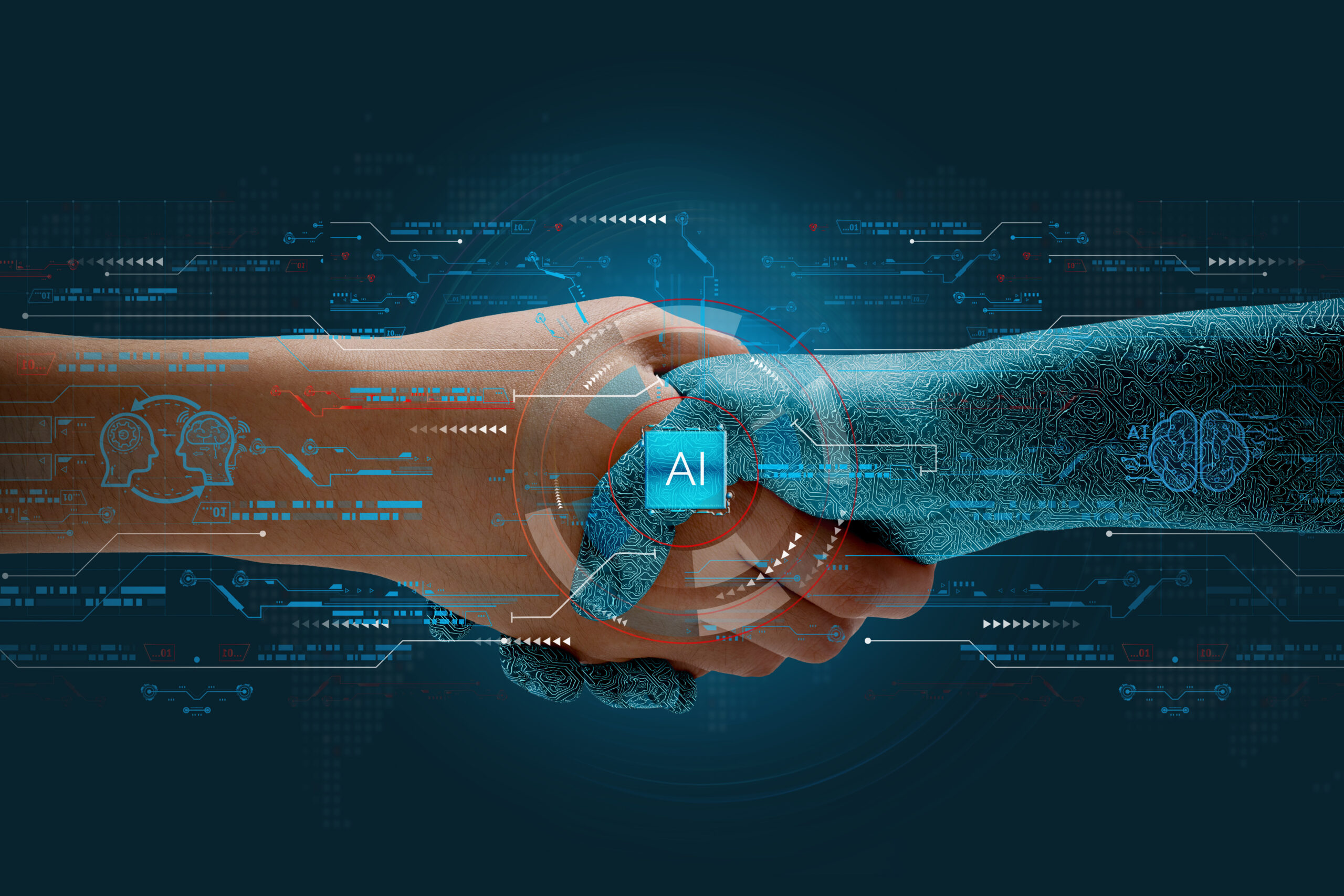AI Marketing: Transforming Digital Strategies
Imagine a marketing team that analyzes millions of data points in seconds and crafts perfectly personalized messages for each customer. This is the reality of AI marketing, where artificial intelligence is transforming how businesses connect with their audiences.
According to Marketing AI Institute’s 2023 report, most marketers now consider AI critically important for reducing time on repetitive tasks and delivering personalized experiences at scale.
AI marketing acts as a superpower for digital marketing teams. By using sophisticated algorithms and machine learning, businesses analyze customer behavior, automate content creation, and deliver hyper-personalized experiences with precision and efficiency.
At its core, AI marketing represents a shift in digital strategies. Instead of relying on gut feelings or broad demographic targeting, AI enables data-driven decisions based on real-time insights and predictive analytics.
Artificial intelligence is reshaping the business landscape. As companies connect with audiences in innovative ways, AI enhances efficiency, customization, decision-making, and customer interaction.
Appinventiv Research Report
Explore how AI transforms digital marketing—from enhancing content creation and enabling one-to-one personalization to unlocking deeper customer insights through advanced data analysis. The future of marketing is intelligently automated, deeply personalized, and powered by AI.
How AI Enhances Marketing Personalization
AI has transformed how businesses connect with their customers through personalized marketing. According to recent industry data, over 40% of companies now use AI to create personalized customer experiences that drive engagement and conversions.
By analyzing vast amounts of customer data in real-time, AI algorithms identify subtle patterns and preferences that are impossible to detect manually. This insight allows marketers to move beyond basic demographic segmentation to truly understand individual customer journeys and needs.
AI-driven personalization impacts more than just product recommendations. Modern AI systems dynamically adjust everything from email subject lines to website content based on each user’s behavior patterns and preferences.
Companies excelling at personalization generate 40% more revenue from those activities than average players. Across US industries, shifting to top-quartile performance in personalization would generate over $1 trillion in value.
McKinsey Research
AI personalization’s power lies in its ability to learn and adapt in real-time. Unlike traditional marketing that relies on periodic campaign analysis, AI systems continuously refine their understanding of customer preferences through each interaction.
For marketers, this means delivering precisely targeted content at the right moment in the customer journey. Whether it’s a timely product recommendation or a personalized offer, AI ensures marketing messages resonate individually.
The practical applications of AI personalization are diverse. From customizing email content to tailoring website experiences, AI helps create seamless, personalized touchpoints across all marketing channels.
AI personalization has moved beyond simple reactivity to true predictivity. Modern systems anticipate customer needs and preferences before they’re explicitly expressed, enabling proactive marketing strategies that feel natural and helpful.
Looking ahead, AI technology promises even more sophisticated personalization capabilities. As algorithms become more refined and data analysis more nuanced, the gap between mass marketing and truly individualized experiences will continue to widen.
Automating Content Creation with AI
Artificial intelligence is revolutionizing how organizations create content, offering powerful tools to automate and streamline production. With more than 85% of content creators now using AI tools, the technology is essential for maximizing productivity while maintaining quality.
AI-powered platforms generate diverse content formats, from detailed blog posts to engaging social media updates. These systems analyze vast datasets to understand audience preferences, optimize messaging, and ensure consistency across all content. The technology’s ability to process information and generate content at scale saves significant time.
AI’s automation excels at handling repetitive content tasks with precision. Content teams can delegate routine writing to AI, focusing on high-level strategy and creative direction. This shift allows marketers to invest more time in innovative campaigns and refining their content strategy.
The efficiency gains from AI automation extend beyond content generation. These tools analyze performance metrics, suggest optimizations, and determine the best times to publish content across platforms. This data-driven approach ensures content resonates with target audiences, maximizing engagement.
| Advantage | Description |
|---|---|
| Automation of Repetitive Tasks | AI automates tasks like data analysis and content optimization, freeing up time for creative work. |
| Improved Personalization | AI analyzes user data to create personalized content, improving engagement and conversions. |
| Content Generation at Scale | AI produces large volumes of content quickly, maintaining consistency and quality. |
| Enhanced Content Strategy | AI provides insights and optimizations to refine content strategies and improve effectiveness. |
Most importantly, AI serves as a collaborative partner, not a replacement for human creativity. While technology handles content production, marketers maintain control over brand voice, messaging strategy, and creative direction. This partnership between human insight and AI efficiency creates a powerful framework for modern content creation.
The Role of AI in Predictive Marketing Analytics
Predictive analytics is transforming marketing, with artificial intelligence driving data-driven decision-making. A recent Gartner study reports that 74% of CMOs consider AI-powered predictive analytics essential for their marketing strategy in the coming years.
The combination of AI and predictive analytics allows businesses to process vast customer data quickly, identifying patterns and trends undetectable by traditional methods.
Machine learning algorithms analyze historical customer behaviors and market interactions to forecast future trends accurately, helping marketers anticipate customer needs.
Transforming Raw Data into Actionable Insights
AI systems analyze multiple data streams, such as social media engagement and purchase history, to create a comprehensive view of customer behavior. This analysis provides deeper insights than ever before.
Modern AI tools automate data processing and pattern recognition, allowing marketers to focus on interpreting results and crafting strategic responses.
AI’s real-time processing capabilities enable businesses to adjust marketing strategies quickly, helping them stay ahead of market shifts.
Enhancing Marketing Decision Making
AI-driven predictive analytics empowers marketers to base decisions on data rather than intuition. By analyzing past campaign performance, AI can forecast the success of future initiatives.
Predictive analytics, empowered by AI, is revolutionizing digital marketing. It helps marketers understand and anticipate consumer behavior, making marketing efforts more efficient and effective.
Maurice Bretzfield, Digital Marketing Expert
Companies using these technologies report significant improvements in campaign performance. For example, some retailers have seen up to 20% increases in click-through rates with AI-optimized email campaigns.
The technology excels at customer segmentation, creating detailed profiles based on behavior patterns, enabling highly targeted campaigns.
Future Implications
As AI technology advances, its role in predictive marketing analytics will grow. The sophistication of machine learning algorithms promises more accurate predictions and deeper insights.
Privacy considerations and ethical data use remain crucial as these technologies evolve. Successful implementation requires balancing analytical capabilities with responsible data stewardship.
Forward-thinking marketers are exploring ways to integrate advanced AI capabilities into their predictive analytics, ensuring competitiveness in a data-driven marketplace.
Potential Challenges in AI Marketing Adoption
Integrating artificial intelligence into marketing offers significant opportunities, but organizations face hurdles in implementation. Data privacy is a primary concern, as companies must navigate complex regulations while maintaining customer trust.
Recent research indicates that AI technologies enable marketers to leverage extensive consumer data for precise targeting and personalization. However, this raises serious concerns about data security and consumer privacy protection.
The challenge of data privacy manifests in securing sensitive customer information against breaches and ensuring compliance with regulations like GDPR and CCPA. Organizations must implement robust encryption protocols and establish clear data governance frameworks to protect customer information.
Addressing the Skills Gap
A critical challenge lies in acquiring and retaining AI-capable talent. Organizations often struggle with a skills gap when implementing AI marketing solutions. The rapidly evolving nature of AI technology demands continuous learning and adaptation.
To bridge this gap, companies must invest in comprehensive training programs and consider both upskilling existing employees and recruiting specialized talent. Creating cross-functional teams that combine marketing expertise with technical knowledge is essential for successful AI implementation.
Professional development initiatives should focus on building both technical competencies and strategic understanding of AI applications in marketing contexts. This dual approach ensures teams can leverage AI tools effectively while maintaining marketing objectives.
Integration and Technical Challenges
Implementing AI marketing solutions presents technical obstacles. Legacy systems often struggle to integrate smoothly with new AI technologies, creating operational inefficiencies and delays.
Organizations must evaluate their existing technology infrastructure and plan for seamless integration. This might involve updating legacy systems, implementing middleware solutions, or adopting new platforms entirely.
Successful integration requires a methodical approach to testing and deployment, ensuring all systems work together effectively while maintaining data security and operational efficiency. Regular audits and updates help maintain system performance and security standards.
| Challenge | Solution |
|---|---|
| Lack of transparency in AI models | Explainable AI (XAI) systems |
| Data privacy concerns | Privacy-preserving AI technologies |
| Bias in AI models | Fairness-aware algorithms and data audits |
| The high demand for AI skills | Upskilling programs and AI-as-a-Service platforms |
| Integration with legacy systems | Hybrid models and middleware solutions |
| High costs of AI implementation | Pilot projects and cloud-based AI services |
Successfully adopting AI marketing requires organizations to address these challenges through strategic planning, investment in talent, and robust security measures. By proactively tackling these obstacles, companies can better position themselves to harness AI’s transformative potential in marketing.
Conclusion: Leveraging AI for a Competitive Edge


AI adoption is crucial for businesses aiming to stay competitive. AI-powered marketing enhances customer segmentation, personalization, and campaign optimization, significantly improving ROI.
AI marketing offers transformative benefits beyond basic automation. McKinsey research shows companies excelling at AI-driven personalization generate 40% more revenue than those with average performance, underscoring the importance of embracing AI to maintain a competitive edge.
Successful AI implementation requires a strategic approach focusing on clear business objectives and measurable outcomes. Organizations must consider data quality, integration capabilities, and ethical implications when building their AI marketing infrastructure.
Platforms like SmythOS are valuable assets, offering intuitive tools for creating and deploying AI marketing solutions without extensive technical expertise. Their no-code approach and built-in monitoring capabilities allow marketing teams to focus on strategy while the platform manages complex technical integrations.
Looking ahead, successful companies will treat AI as a core component of their marketing strategy. Organizations willing to embrace innovation and evolve their approach to meet changing customer expectations will thrive.
Last updated:
Disclaimer: The information presented in this article is for general informational purposes only and is provided as is. While we strive to keep the content up-to-date and accurate, we make no representations or warranties of any kind, express or implied, about the completeness, accuracy, reliability, suitability, or availability of the information contained in this article.
Any reliance you place on such information is strictly at your own risk. We reserve the right to make additions, deletions, or modifications to the contents of this article at any time without prior notice.
In no event will we be liable for any loss or damage including without limitation, indirect or consequential loss or damage, or any loss or damage whatsoever arising from loss of data, profits, or any other loss not specified herein arising out of, or in connection with, the use of this article.
Despite our best efforts, this article may contain oversights, errors, or omissions. If you notice any inaccuracies or have concerns about the content, please report them through our content feedback form. Your input helps us maintain the quality and reliability of our information.
